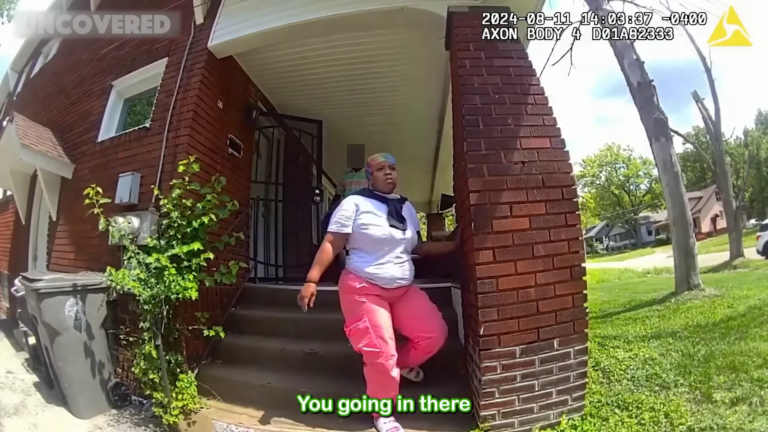
As a landlord in California, dealing with non-paying tenants can lead to prolonged stress and financial loss. Understanding your rights and the legal processes involved in evictions is essential to protect your investment and avoid costly mistakes. This guide will walk you through the critical steps in the eviction process and highlight effective alternatives like squatter lockout.
Table of Contents
- 🏚️ Landlord Eviction Challenges
- 📄 3-Day Notice to Pay Rent
- ⚖️ Unlawful Detainer Lawsuit Explained
- 🔍 Legal Procedures for Evictions
- 🏠 Tenant Defenses and Rights
- 🛠️ Seeking Advice on Squatter Lockout
- 🔍 Summary and Contact Trium Law Group
- ❓ FAQ
🏚️ Landlord Eviction Challenges
Landlords in California encounter a myriad of challenges when dealing with non-paying tenants. The eviction process can be prolonged, often stretching out for months, which leads to financial strain and emotional distress. Understanding the intricacies of eviction laws is not just beneficial; it is essential for protecting your investment.
One significant challenge is the uncertainty surrounding the eviction timeline. Tenants may contest eviction notices, claiming improper procedures or other defenses, which can delay the process even further. This uncertainty can lead to increased property damage and lost rental income.
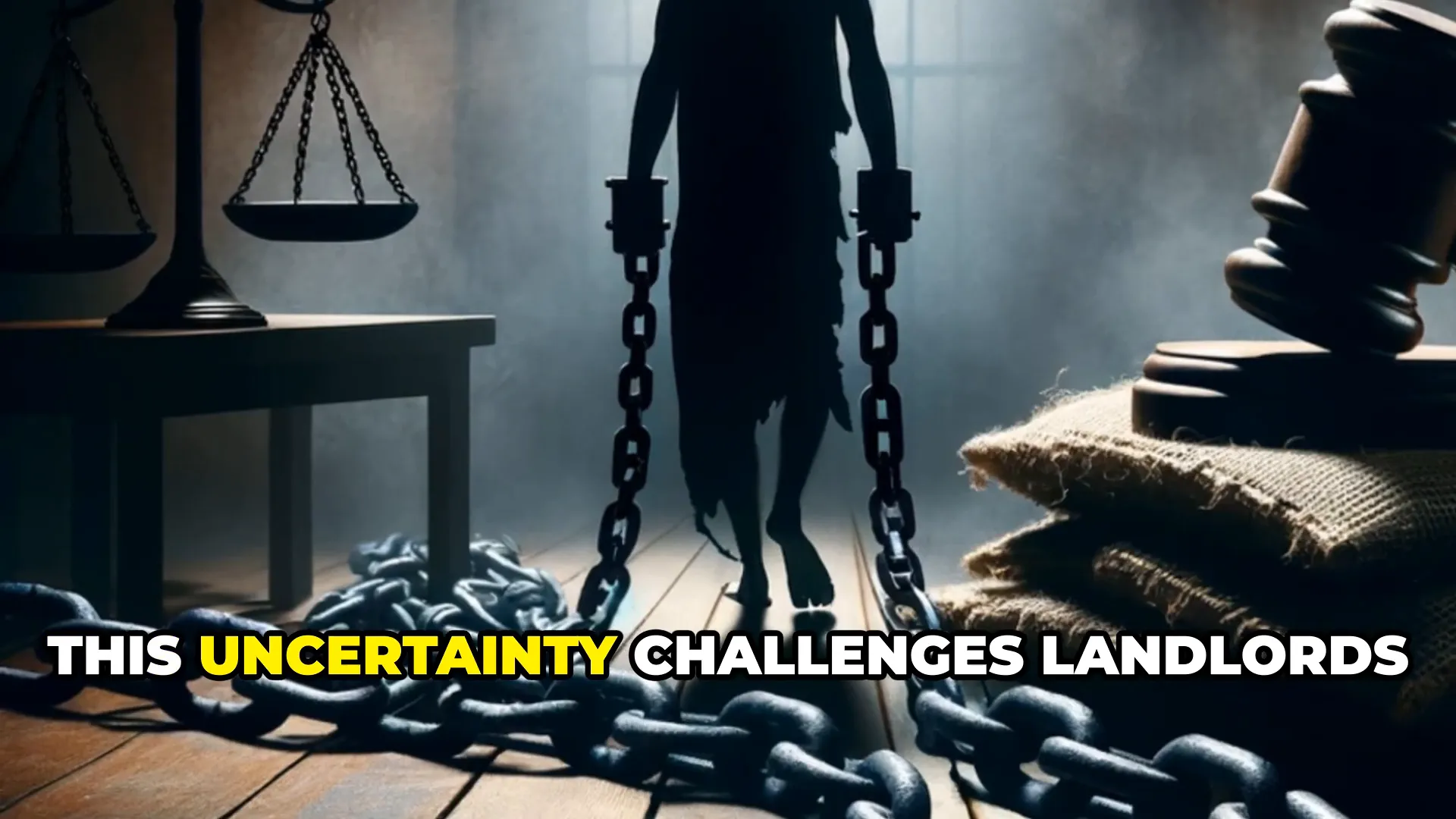
Moreover, landlords are often unaware of their rights and responsibilities, which can lead to mistakes that jeopardize their cases. Legal procedures must be followed meticulously; ignorance of the law can result in severe repercussions, including the dismissal of your eviction case.
In California, landlords must navigate a complex legal framework designed to protect tenants, making it imperative to stay informed and seek expert assistance. This is where understanding alternatives like squatter lockout becomes crucial. It provides a pathway to expedite the process and regain control of your property.
📄 3-Day Notice to Pay Rent
The first formal step a landlord must take when a tenant is behind on rent is to serve a 3-Day Notice to Pay Rent or Quit. This notice is critical; it informs the tenant of overdue rent and outlines the consequences of non-compliance. The tenant has three days to either pay the overdue rent or vacate the premises.
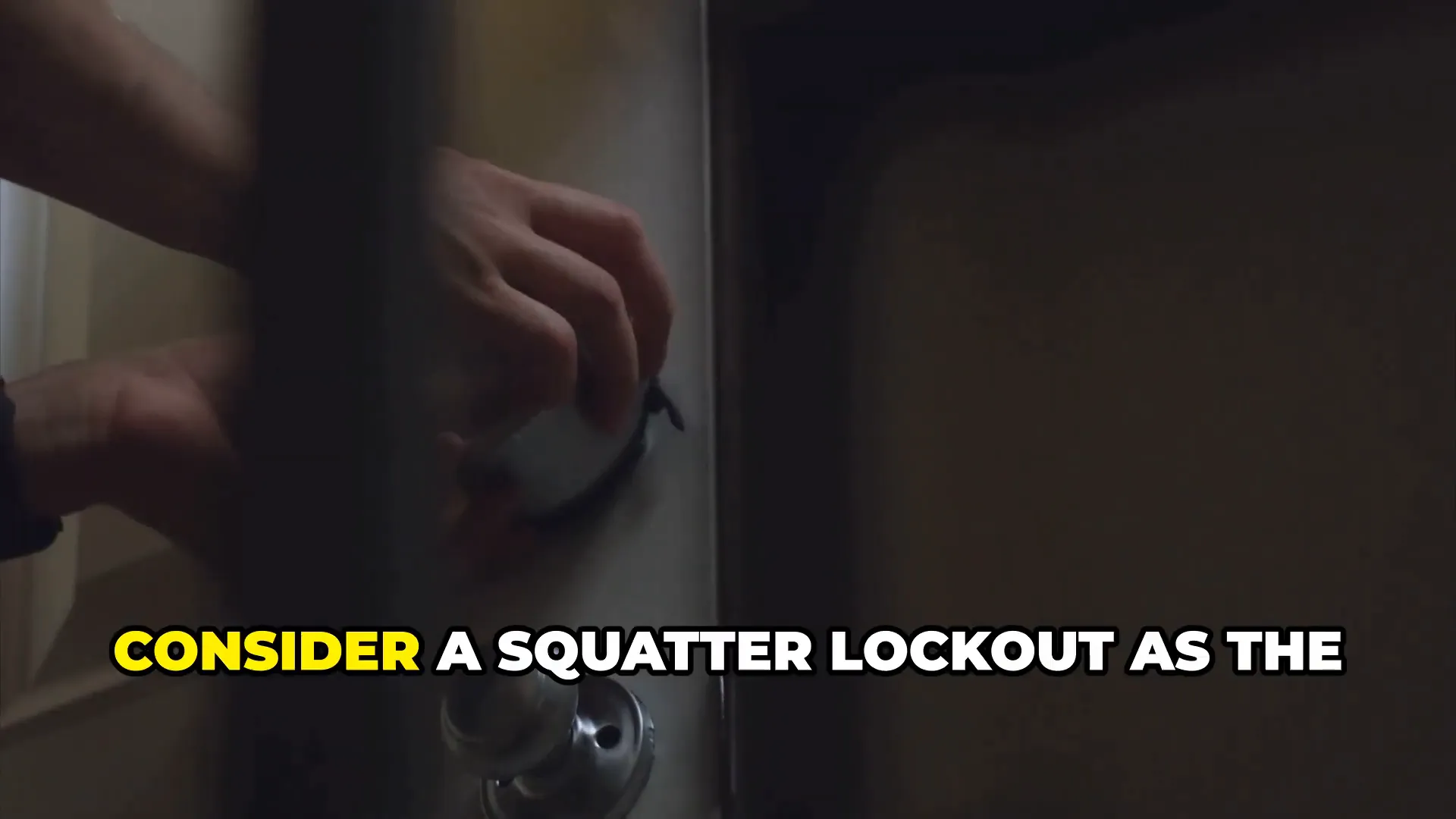
Failure to serve this notice correctly can lead to complications. California law requires that the notice be filled out accurately and served in a specific manner. Landlords must ensure they either deliver it in person, post it on the door, or mail a copy while documenting the service meticulously.
Proper documentation includes taking photographs and maintaining logs of service. This evidence becomes essential should you need to pursue further legal action. Without proper documentation, your eviction process may be delayed or invalidated altogether.

⚖️ Unlawful Detainer Lawsuit Explained
If the tenant fails to comply with the 3-Day Notice, the next step is to file an unlawful detainer lawsuit. This legal action is essential for regaining possession of your property. An unlawful detainer allows landlords to seek a court order to evict a tenant who has not paid rent.
When filing this lawsuit, accurate documentation is crucial. You must include the eviction notice, proof of service, and the lease agreement. Inaccurate or incomplete paperwork can lead to delays or even dismissal of your case. The stakes are high, and every detail matters.
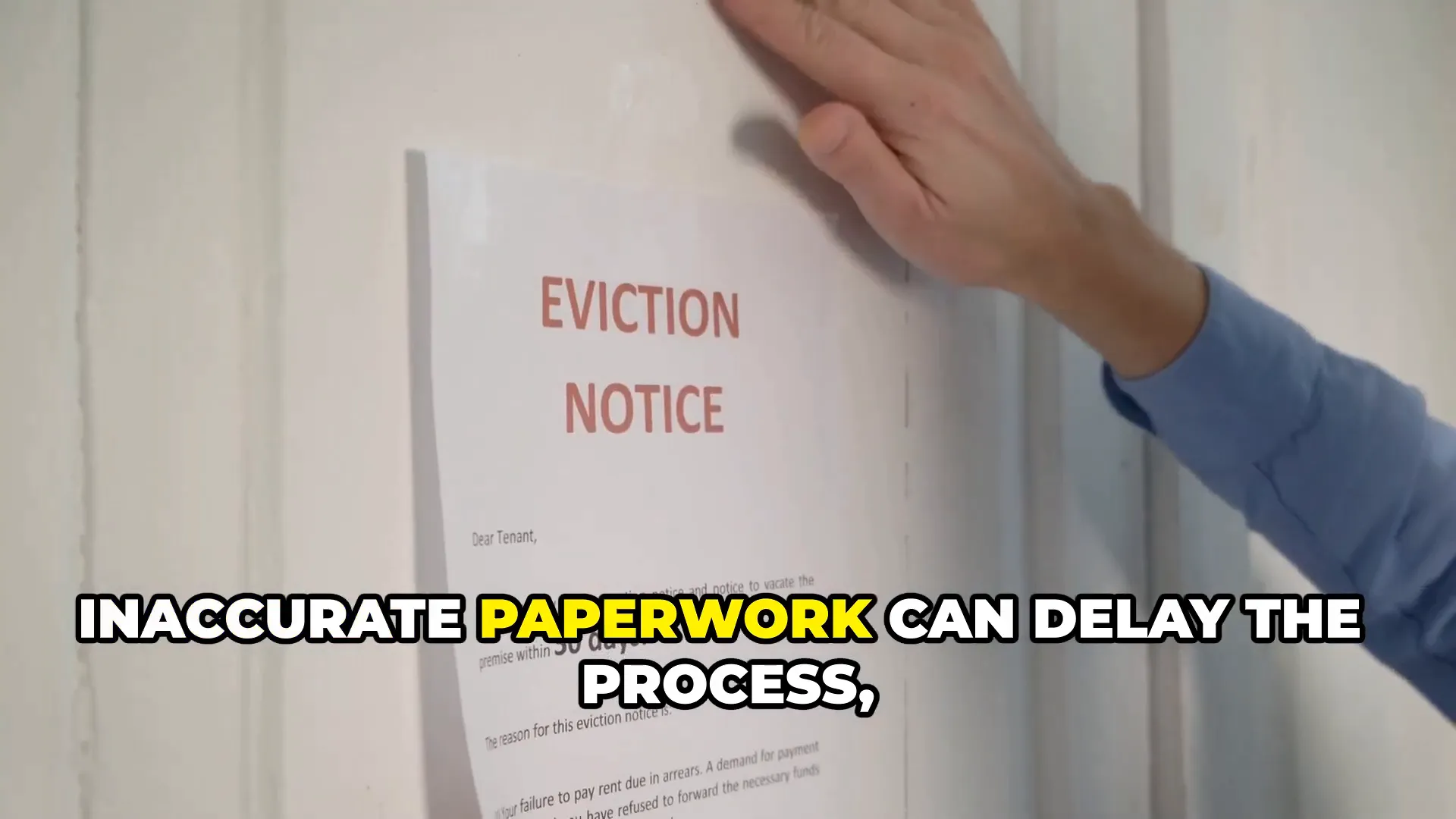
It’s also important to understand that tenants may contest the unlawful detainer, using various defenses. This can prolong the process further, adding to the landlord’s financial burden. Therefore, being prepared with comprehensive documentation and legal knowledge is essential for a successful outcome.
🔍 Legal Procedures for Evictions
The legal procedures for evictions in California are strict and must be followed meticulously. Ignorance of these laws can lead to severe consequences, including fines or criminal charges. Self-help evictions, such as changing locks or shutting off utilities, are illegal and can result in lawsuits against landlords.
Landlords must adhere to the legal eviction process, which is designed to protect tenants from wrongful eviction. This includes properly serving notices, filing lawsuits, and attending court hearings. Each step must be executed with precision, as any misstep can jeopardize your case.
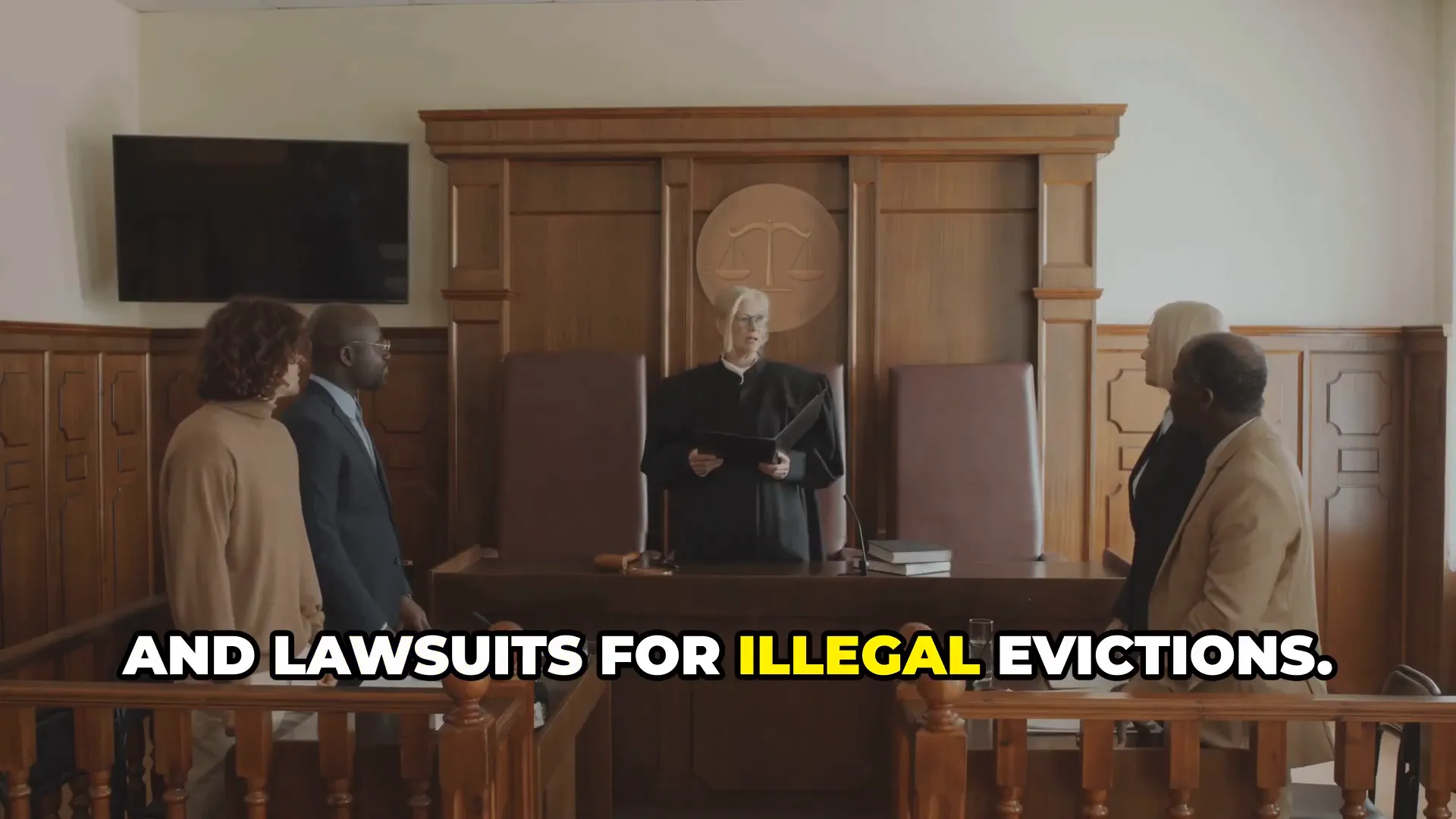
In addition, landlords should be aware of local ordinances, such as the Los Angeles Municipal Code, which may impose additional requirements. Staying informed about these laws is crucial for effective property management and legal compliance.
For landlords feeling overwhelmed by the eviction process, seeking assistance from professionals can be a game-changer. Companies specializing in squatter lockout can offer expertise and support, allowing landlords to reclaim their properties more efficiently.
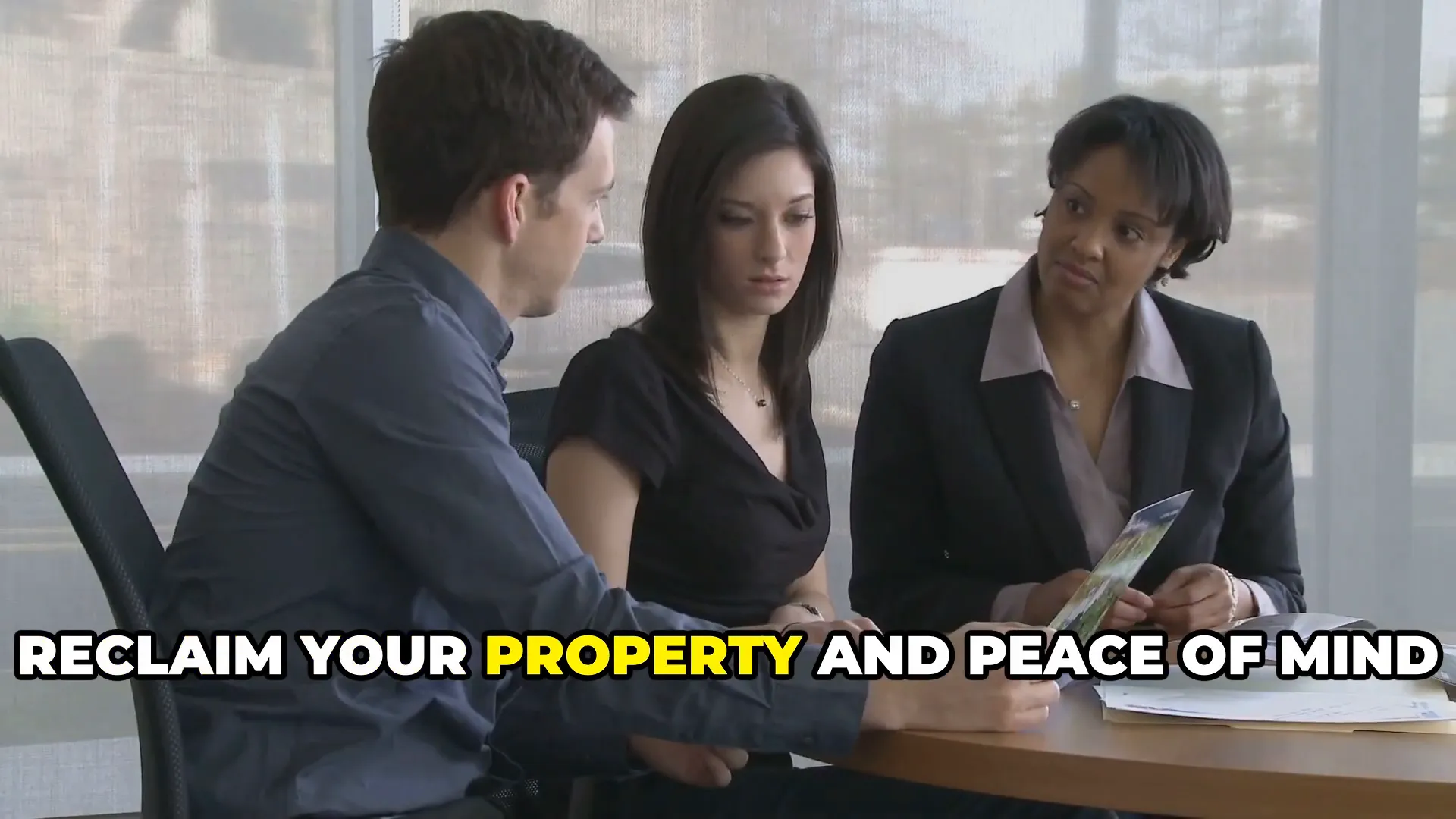
🏠 Tenant Defenses and Rights
Understanding tenant defenses is crucial for landlords navigating the eviction process. Tenants may utilize various arguments to contest an eviction, which can complicate matters significantly. Common defenses include improper notices, claims of uninhabitable conditions, and retaliatory eviction allegations.
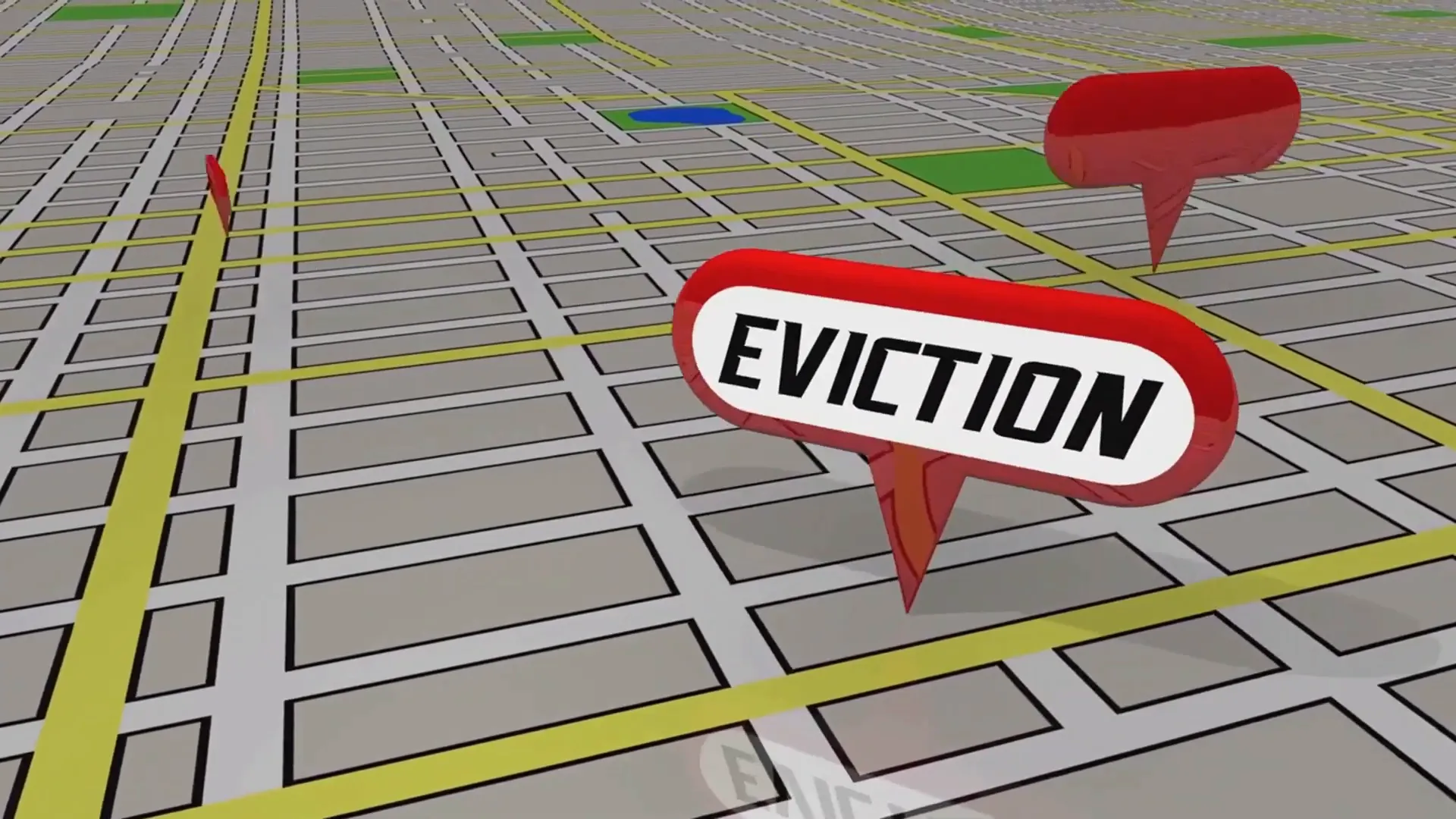
Landlords must be prepared to counter these defenses effectively. Proper documentation and adherence to legal procedures are essential. If a tenant claims the property is uninhabitable, landlords must provide evidence of repairs and maintenance to refute these claims.
- Improper Notices: Tenants may argue that the eviction notice was served incorrectly. Ensuring that all notices comply with legal requirements is critical.
- Uninhabitable Conditions: Claims regarding issues like mold or pest infestations can be a significant roadblock. Documenting maintenance records is vital.
- Retaliatory Eviction: If a tenant has recently complained about conditions, they may claim the eviction is retaliatory. Landlords should maintain clear communication and records of any complaints addressed.
These defenses can prolong the eviction process, leading to further financial strain on landlords. It is essential to consult legal experts to navigate these complexities effectively.
🛠️ Seeking Advice on Squatter Lockout
When faced with a squatter situation, seeking expert advice is paramount. Squatter lockout services can provide landlords with the necessary guidance and support to reclaim their property quickly and legally. Attempting to handle this situation alone can lead to costly mistakes and legal repercussions.

Here are key considerations when seeking advice on squatter lockout:
- Understanding the Process: Knowledge of the legal framework surrounding squatter evictions is crucial. Professionals can help clarify procedures and rights.
- Documentation: Proper documentation is essential in any eviction process. Experts can assist in gathering necessary evidence to support your case.
- Legal Representation: Engaging legal counsel can offer peace of mind. They can represent your interests in court and ensure compliance with all laws.
- Cost Considerations: Weigh the costs of professional help against potential losses incurred from prolonged squatter situations.
Don’t navigate this challenging landscape alone. Professional assistance can save you time, money, and stress, allowing you to focus on what matters most—your property.
🔍 Summary and Contact Trium Law Group
Navigating the complexities of eviction and squatter situations can be overwhelming for landlords. Understanding tenant defenses, legal procedures, and the benefits of professional assistance are essential for reclaiming your property efficiently. Squatter lockout services provide a vital alternative for landlords facing these significant challenges.

If you’re a landlord in California struggling with non-paying tenants or squatters, don’t hesitate to reach out for help. The Trium Law Group specializes in tenant law and can offer tailored solutions to your specific situation.
Contact us today to discuss your case and explore how we can assist you in reclaiming your property and peace of mind:
- Phone: [Insert Phone Number]
- Email: [Insert Email Address]
- Website: [Insert Website URL]
Take action now. Your property deserves protection, and we are here to help you navigate these complexities effectively.
❓ FAQ
As landlords face the challenges of eviction, several common questions arise. Addressing these concerns can provide clarity and guidance during this stressful process.
- What should I do if my tenant refuses to leave? Seek legal advice immediately and consider filing an unlawful detainer lawsuit to initiate the formal eviction process.
- How long does the eviction process take? Evictions can take several weeks to months, depending on the circumstances and any defenses raised by the tenant.
- Can I change the locks on my property? No, changing locks without following legal procedures is illegal and can lead to repercussions for landlords.
- What if my tenant claims the property is uninhabitable? Document all repairs and communications with the tenant. Legal advice may be necessary to address these claims effectively.
- How can squatter lockout services help me? They provide expertise in navigating the legal landscape, ensuring compliance, and expediting the eviction process.
For further questions or personalized assistance, contact the Trium Law Group. We are here to help you every step of the way.

